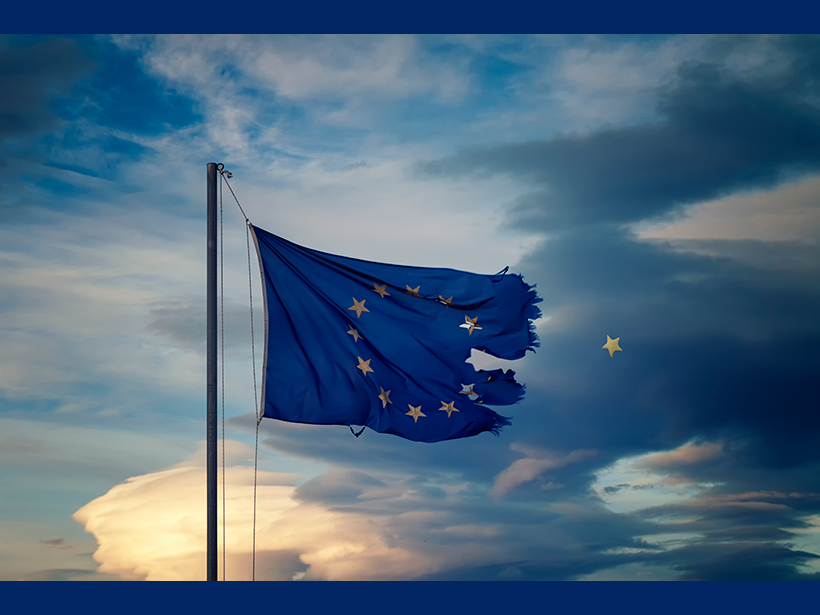On Thursday, 23 June, voters in the United Kingdom approved a referendum to leave the European Union (EU). As British and European leaders, policy makers, and others debated in recent months the withdrawal’s potential effects on immigration, the stability of the EU, and the global economy, another group of British and EU citizens came forward to express their disappointment with the exit: scientists.
A poll by Nature found that out of 907 researchers, 83% said that the United Kingdom should remain in the EU, and 78% of those who planned to vote (666 researchers) said that leaving the EU would be “very harmful for UK science.” See the full results here.
A London Geological Society poll on how members think the “Brexit” might affect their careers, in terms of employment, funding opportunities, and ease of access to knowledge and support for innovation, reflected a similar attitude: The question “What impact will leaving the European Union have on your employment sector?” resulted in 62.5% of the 863 respondents answering “very negative” or “slightly negative.” Additionally, 67.2% of respondents said that leaving the EU would have a “very negative” or “slightly negative” effect on research and funding. See the full survey results here.
Ease of Travel
The free travel between EU countries has been an especial boon to U.K. scientists. According to Nature News, a study covering 2011–2013 found that 31% of academics in the EU worked outside of their country of residence in the previous decade. Eighty percent of scientists who worked internationally say it affected their research positively, and 60% said that international research opportunities “had strongly increased their research output.”
“Science, and geoscience in particular, is an international activity that benefits from cooperation and collaboration.”
“Science, and geoscience in particular, is an international activity that benefits from cooperation and collaboration,” said Simon Redfern, a professor of mineral physics at the University of Cambridge. The Brexit vote “sadly sends an unfortunate signal that the UK is unwelcoming, despite the fact that almost half the voters took the opposite view.”
“Like most people right now, I can only guess, surmise and worry,” said Martin Skov, a Danish marine ecologist who focuses on coastal wetlands at Bangor University in Wales. Much of his research involves partnerships with institutions across Europe. He said, “[These partnerships bring] me into contact with people and ideas I would otherwise not be exposed to.”
Funding Woes
Further, many scientists worry about funding. Eighteen percent of funds from the EU go toward research and development, and many scientists worry that funding could dry up.
“I still collaborate with those [researchers] and I aim to continue to, no matter what, although the funding opportunities to do so might well reduce following Brexit,” Skov continued.
“Now, the task will be to try and negotiate continued access to [funds], which deliver around 1 billion pounds a year of support to UK science as a whole,” Redfern said.
Environmental Policies
“I think many scientists in the UK are still in shock at the result,” said Dominick Spracklen, an atmospheric scientist at the University of Leeds. Along with a general worry about funding and the possibility of more difficulties traveling between countries, Spracklen worries what a withdrawal from the EU might mean for environmental policies.
Environmental policies from the EU have affected much of Britain’s clean air policy, according to the U.K. government. In 2008, for example, the EU enacted an air quality directive that set limits for major air pollutants like nitrogen dioxide—the directive became law in 2010. Carbon emissions have also dropped because of EU policies, such as the one setting emission limits on new cars in 2015.
“If the UK will no longer be subject to EU environmental legislation, there are potential implications for future air quality and the health of the British public.”
“If the UK will no longer be subject to EU environmental legislation, there are potential implications for future air quality and the health of the British public,” Spracklen said.
“The general word is that nothing is going to happen fast,” said Eli Lazarus, an American geophysicist at Cardiff University in Wales. An email from the vice chancellor assured staff that nothing is going to happen on the short to medium term, Lazarus said.
Still, the mood around the office has been grim, Lazarus said, “because they’re waiting for the other shoe to drop.”
—JoAnna Wendel, Staff Writer
Correction, 27 June 2016: An earlier version of this article gave an incorrect date for the vote in the United Kingdom on whether to leave or stay in the European Union. This article has been updated with the correct date.
Correction, 28 June 2016: The percentage of United Kingdom citizens who voted for the exit referendum was incorrect in an earlier version of this article and has been removed.
Citation:
Wendel, J. (2016), Geoscientists react to Brexit vote, Eos, 97, https://doi.org/10.1029/2016EO055081. Published on 27 June 2016.
Text © 2016. The authors. CC BY-NC-ND 3.0
Except where otherwise noted, images are subject to copyright. Any reuse without express permission from the copyright owner is prohibited.

